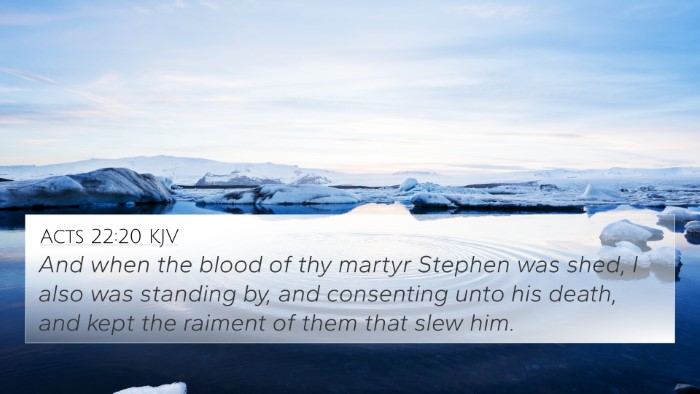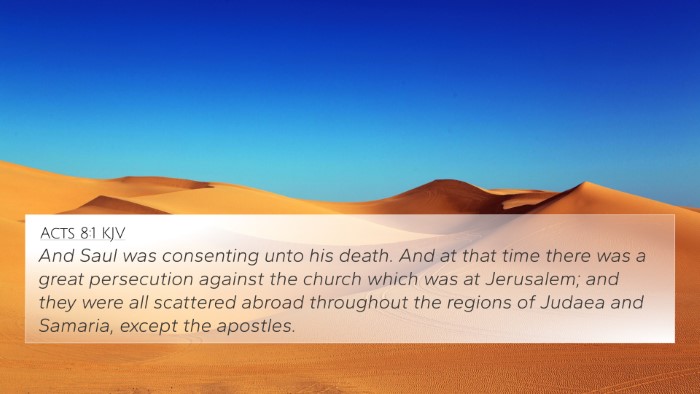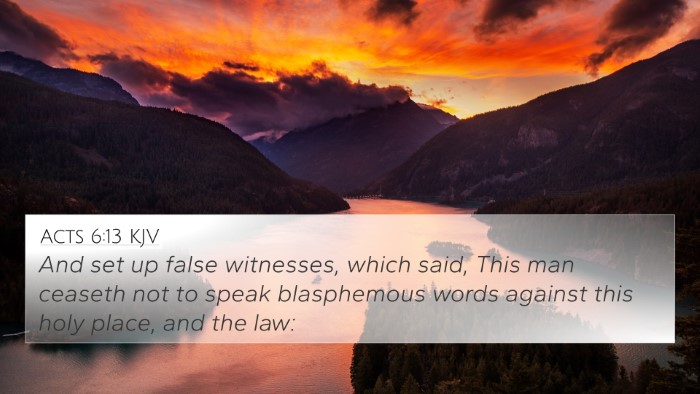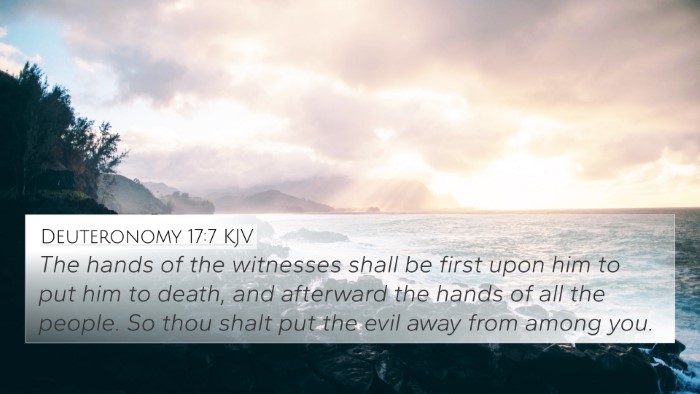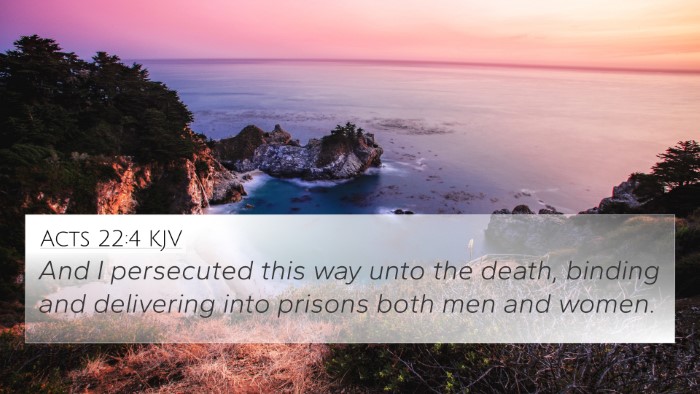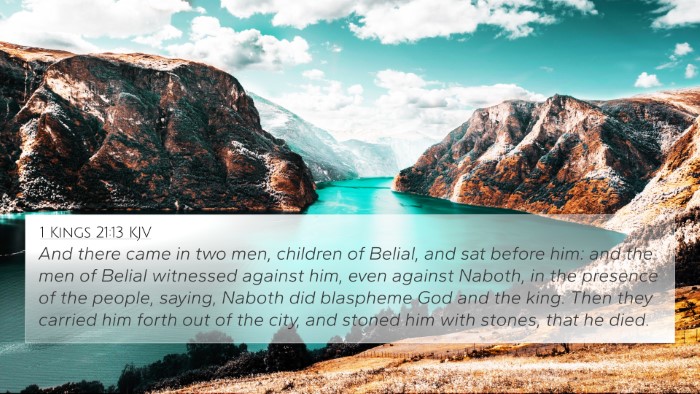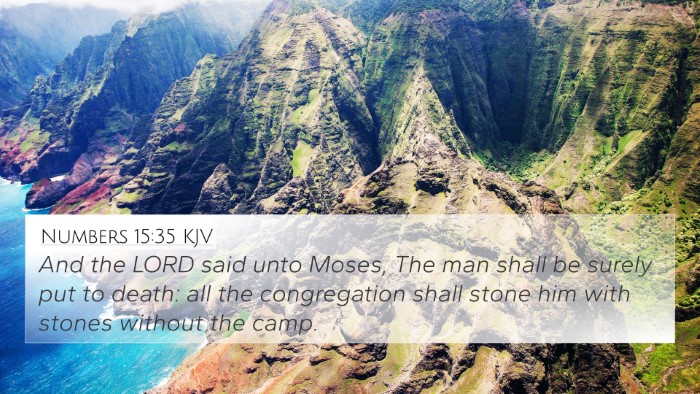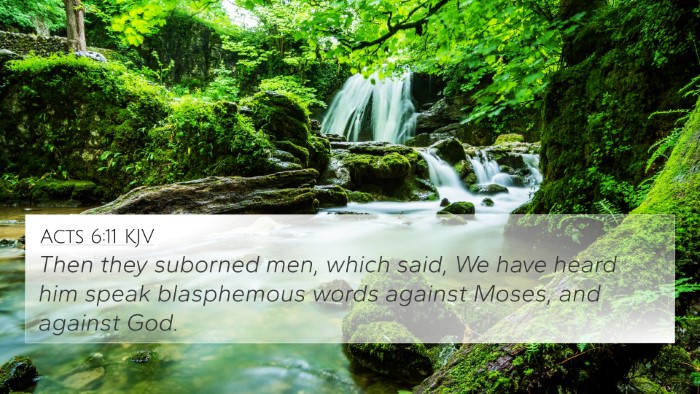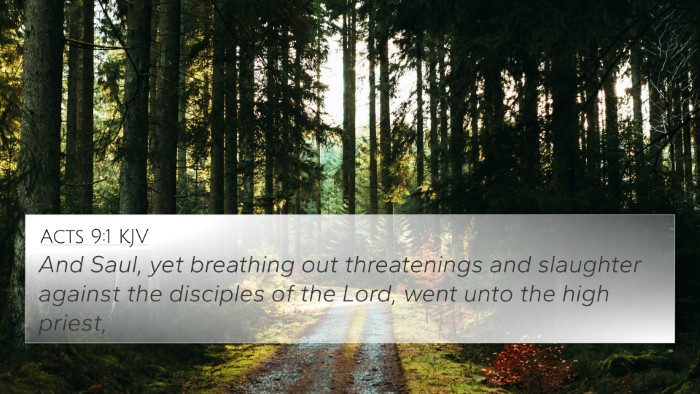Understanding Acts 7:58
Acts 7:58 describes a significant moment in the early church history where Stephen, the first Christian martyr, is dragged out of the city and stoned. The verse states: "And cast him out of the city, and stoned him: and the witnesses laid down their clothes at a young man's feet, whose name was Saul." This pivotal event not only marks the persecution of Christians but also sets the stage for the eventual conversion of Saul, later known as Paul.
Overview of Acts 7:58
The context of this verse is rooted in Stephen's bold proclamation of faith before the Sanhedrin, which ultimately led to an aggressive response from the Jewish leaders. The act of stoning was a punishment prescribed in the Mosaic Law for blasphemy, which they accused Stephen of committing. This moment serves as a harrowing reminder of the cost of discipleship and the early church's struggle against opposition.
Historical Context
In Acts 7:58, we witness a transition in the narrative where the early Christian movement confronted hostility from the Jewish authorities. Matthew Henry's commentary highlights how Stephen's stoning foreshadows the widespread persecution that would follow the apostles, indicating the church's trajectory in a hostile environment.
Albert Barnes provides insight into the character of Saul, who later becomes Paul, emphasizing his active role in these events. It is notable that he was a witness to the execution, illustrating how God can turn adversaries into advocates for the faith.
Significant Themes
- Persecution of Believers: This event exemplifies the early Christians' trials and tribulations.
- Role of Leaders: The mention of Saul reflects the presence of influential figures in the persecution of the church.
- Martyrdom: Stephen's death sets a powerful precedent for Christian martyrdom.
- God’s Sovereignty: Despite the violence, God's plan for the church continues to unfold.
Bible Verse Cross-References
Acts 7:58 connects with several other scriptures that enhance our understanding of its meaning:
- Matthew 5:10-12: Blessed are those who are persecuted for righteousness' sake.
- John 16:2: The time is coming when those who kill you will think they are offering service to God.
- Acts 22:20: Paul recounts his participation in the martyrdom of Stephen.
- 2 Timothy 3:12: All who desire to live godly in Christ Jesus will suffer persecution.
- Acts 8:1: Following Stephen's death, a great persecution arose against the church in Jerusalem.
- Phillipians 1:29: It has been granted to you on behalf of Christ not only to believe in Him but also to suffer for His sake.
- Revelation 2:10: Be faithful unto death, and I will give you the crown of life.
Comparative Bible Verse Analysis
When analyzing Acts 7:58 alongside the aforementioned verses, a clear theme emerges regarding the persecution of believers. The connection between the martyrdom of Stephen and later instances of persecution throughout church history highlights the enduring challenge faced by the early Christians. This verse serves as a poignant reminder of the stakes involved in proclaiming one's faith.
Thematic Bible Verse Connections
The themes of suffering, witnessing, and divine purpose are intricately linked throughout the scriptures. Acts 7:58 invites believers to reflect on their own willingness to stand firm in faith amidst adversity.
Understanding the Role of Saul
In the context of Acts 7:58, the figure of Saul represents not only opposition but also the potential for transformation. Adam Clarke notes that Saul's presence as a witness prepares the way for his eventual conversion on the road to Damascus, illustrating how God can repurpose even the fiercest opponents of the faith for His own glory.
Final Thoughts
Acts 7:58 encapsulates a pivotal moment in the early church's history, symbolizing the challenges believers faced. The commentary insights provide depth to our understanding of how God sovereignly works through situations of persecution and how He can transform adversaries into allies.
Tools for Bible Cross-Referencing
For those looking to delve deeper into the connections between Bible verses, various tools and resources can aid in cross-referencing. A Bible concordance is invaluable for identifying related scriptures, while a cross-reference Bible study guide helps facilitate a comparative analysis of similar themes.
Conclusion
Act 7:58 stands as a powerful testament to the faith of early Christians and the severe consequences they faced for their beliefs. Through a study of cross-referenced verses, one can uncover a rich tapestry of faith, suffering, and divine purpose that not only highlights the context of Stephen’s martyrdom but also encourages believers to maintain courage in their own faith journeys.



